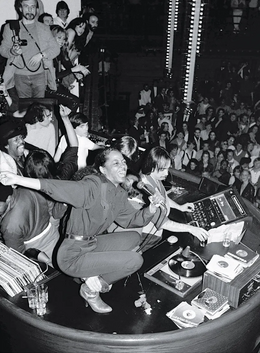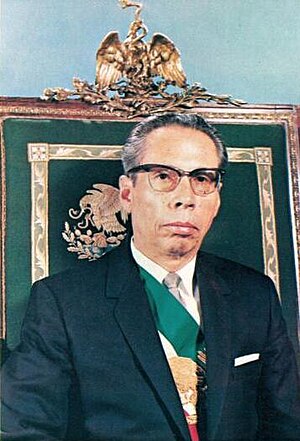Disco Revolt: Difference between revisions
No edit summary |
No edit summary |
||
| Line 14: | Line 14: | ||
| nongregorian = | | nongregorian = | ||
| Deaths = | | Deaths = | ||
| Result = '''Cultural movements'''<br />[[Vida Nocturna]]<br />'''Protest movements'''<br />[[ | | Result = '''Cultural movements'''<br />[[Vida Nocturna]]<br />'''Protest movements'''<br />[[Concrete Movement]]<br>[[Citizens United]]<br>[[Elawe Peoples Movement]] | ||
}} | }} | ||
| Line 22: | Line 22: | ||
==Background== | ==Background== | ||
With the end of the [[Cesyllean Nuclear Crisis]] the Jango Era would also seemingly begin to to come to an end with the successor of President Mauricio Ocampo, Juan Esteban Cazalla announcing his own plans for a national policy that would deviate heavily from Jango’s vision. Namely Cazalla would tighten the authoritarian grip of the state to prevent outside ideas from gaining popularity, an affront to what he saw as the perfect state that Jango had built. | |||
[[File:Gustavo Ordaz 1911.jpg|left|thumb|24xp|Juan Esteban Cazalla, c. 1960]] | |||
==City by city== | ==City by city== | ||
Revision as of 01:26, 29 October 2023
 Hajo Night at the Club El Elawe, c. 1975 | |
| Date | Early 1960s to Early 1970s |
|---|---|
| Location | Elaklania |
| Outcome | Cultural movements Vida Nocturna Protest movements Concrete Movement Citizens United Elawe Peoples Movement |
Disco Revolt (Isbellan: Revuelta Disco) was a series of anti-establishment cultural phenomenon and political movements based around disco music and the night life of modern cities in Elaklania during the 60s and 70s. Disco Revolt was the first major anti-establishment movement in Elaklania and was at least partially responsible for some of the biggest changes in the country’s political history.
Sparked originally by the emergence of disco, the authoritarian rule of President Juan Esteban Cazalla, and his national policy of Nueva iluminación which banned disco music for its “impure qualities” as the movement spread it gradually became less about disco and more about various social issues which the state had not addressed since its inception. Civil rights, feminism, and sexual liberation became more prominent within the movement until entirely new movements were established, most notably being Citizens United.
Background
With the end of the Cesyllean Nuclear Crisis the Jango Era would also seemingly begin to to come to an end with the successor of President Mauricio Ocampo, Juan Esteban Cazalla announcing his own plans for a national policy that would deviate heavily from Jango’s vision. Namely Cazalla would tighten the authoritarian grip of the state to prevent outside ideas from gaining popularity, an affront to what he saw as the perfect state that Jango had built.
